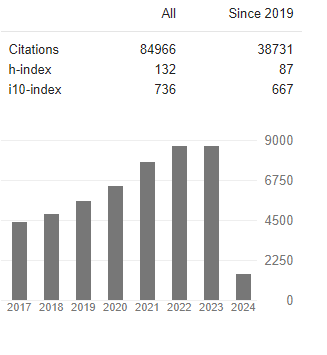Synergistic Effects of Biochar and Phosphorus Fertilization on Wheat Growth, Pollution Reduction, and Soil Enzymatic Behavior
Abstract
Shayesteh Kheradmand, Sohrab Mahmoodi, Ehsan Ahmadi, Mahzad Esmaeili-Falak and Somayeh Karami
This research, conducted in the wheat fields of West Mashhad, Iran, explores the synergistic effects of nano-technology and biochar on wheat cultivation and greenhouse gas emission. There is a growing global interest in recent years to decrease air pollution through augmentation of greenhouse gas emission. Moreover, this study investigated using a factorial experiment and various levels of phosphorus and biochar treatments, the study aimed to understand the dynamics of their combined influence on wheat’s nutrient absorption and soil health. The results indicate that phosphorus fertilizer, particularly at full recommended doses, significantly enhances soil phosphorus content. This impact is further amplified when integrated with biochar, suggesting a collaborative relationship that is beneficial for both soil and crop health. The study also highlighted shifts in soil enzymatic activity: alkaline phosphatase enzyme levels are inversely related to phosphorus application but increase with biochar treatments. Given these findings, the research underscores the potential for refining wheat cultivation techniques. The paper suggests that more comprehensive studies and the integration of modern agricultural technologies could lead to more sustainable wheat cultivation strategies while optimizing yield and soil quality.




